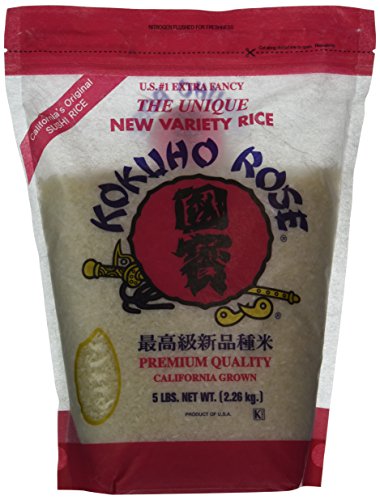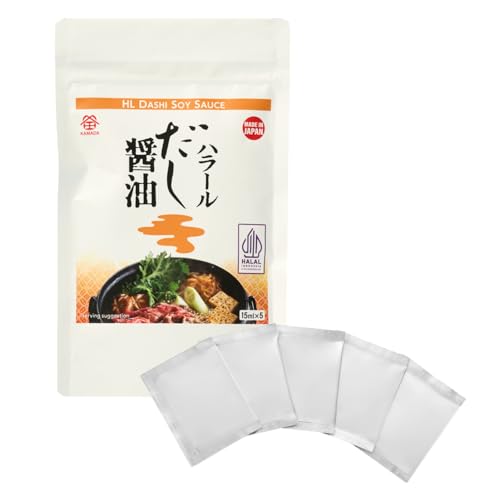Sushi can be halal, but it depends on the ingredients. Seafood like tuna and salmon is generally halal, while common items like rice and nori are safe. However, watch out for alcohol-based ingredients, such as mirin, as they can compromise halal status. You'll also want to avoid imitation crab and unagi if they contain non-halal additives. Always check for halal certification to ensure compliance and prevent cross-contamination. By being vigilant about the ingredients, you can enjoy sushi that fits your dietary needs. There's much more to explore about halal sushi options and how to choose wisely.
Key Takeaways
- Sushi can be halal if prepared with compliant ingredients, like halal-certified seafood and rice without alcohol-based seasonings.
- Avoid sushi with imitation crab or unagi, as these may contain non-halal additives.
- Always check for halal certification from reputable sources to ensure compliance with dietary laws.
- Be aware of cross-contamination risks in restaurants, which could compromise halal status.
- Understanding halal practices enhances your dining experience and supports ethical consumption.

Golden Premium Sushi Rice, Sticky White | Short Grain, Halal + Kosher, Gluten + GMO Free, Vegan | Ideal for Japanese Food, Sushi Making Kit, 32 oz (2LB)
Premium White Rice: Golden Crown Premium Sushi Rice offers a superior quality white rice that is perfect for…
As an affiliate, we earn on qualifying purchases.
As an affiliate, we earn on qualifying purchases.
Introduction

Is sushi halal? In "Is Sushi Halal? Everything You Need to Know Before Your Next Meal," you'll discover that the halal status of sushi hinges on its ingredients.
While seafood like tuna and salmon is generally halal, you need to watch out for components like mirin, an alcohol-based ingredient that can make sushi non-halal.
Common sushi ingredients, such as sushi rice and nori, are typically safe, but imitation crab and unagi may contain non-halal additives.
Halal certification is vital for sushi restaurants to ensure compliance with Islamic dietary laws, so always verify the halal status when dining out.
Alternatively, making homemade sushi gives you full control over the ingredients, ensuring a delicious, halal meal tailored to your taste.

Chef Paul Magic Seasonings Blends Salmon Magic | Salmon Seasoning with Herbs & Spices | Seafood Seasoning for Cooking | Kosher & Halal Certified | 7 oz (Pack of 2)
Bold Flavor for Seafood Lovers: Whether you're grilling, baking, or pan – searing, Salmon Magic Seasoning brings out…
As an affiliate, we earn on qualifying purchases.
As an affiliate, we earn on qualifying purchases.
Halal Dietary Laws Explained

Understanding halal dietary laws is essential for anyone looking to adhere to Islamic dietary guidelines. These laws dictate that food must be permissible according to Islamic law, which includes specific ingredients and preparation methods.
Seafood is generally considered halal, but if it's prepared with alcohol, like mirin, it becomes non-halal. To maintain a dish's halal status, avoid any ingredients that contain alcohol and ensure proper preparation methods are followed.
Cross-contamination with non-halal items is a significant concern, as it can compromise the halal status of your meal. Always look for halal certification from reputable sources to confidently choose meals that comply with halal dietary laws.
Being informed helps you make choices that align with your beliefs and dietary needs.

Kokuho Rice Sushi, 5 Lb
New crop and highest grade
As an affiliate, we earn on qualifying purchases.
As an affiliate, we earn on qualifying purchases.
Cultural Significance of Halal Practices

While you're enjoying a meal, it's essential to recognize that halal practices aren't just about dietary restrictions; they embody deep cultural and religious significance.
Rooted in Islamic teachings, halal food reflects a commitment to ethical consumption, ensuring what you eat is lawful and responsibly sourced. In countries like Indonesia, where the majority of the population is Muslim, halal certification plays a vital role in creating a robust market for halal products and restaurants.
This shift in the culinary landscape promotes diversity in food offerings while respecting cultural norms. Engaging in halal practices strengthens community bonds and fosters shared values, allowing individuals to connect through their food choices and celebrate the rich cultural significance that halal embodies.

BJDesign Halal Certified Dashi Soy Sauce, Made in Japan by Kamada Shoyu, 0.5oz x 5 Pack, Portable. Ideal for Sushi, Sukiyaki, Tofu & Japanese Dishes.
AUTHENTIC JAPANESE DASHI SOY SAUCE A perfect blend of dashi and soy sauce, essential for Japanese cuisine. with…
As an affiliate, we earn on qualifying purchases.
As an affiliate, we earn on qualifying purchases.
Halal Certification Standards Overview

Halal certification standards play a vital role in ensuring that food products meet the requirements of Islamic dietary laws. In Indonesia, the Badan Penyelenggara Jaminan Produk Halal (BPJPH) regulates these standards, emphasizing halal compliance from production to distribution.
As a consumer, you'll notice an increase in halal-certified products driven by rising awareness and demand. Each halal certificate has a validity period, so businesses must stay updated on regulatory updates to maintain compliance.
Effective halal supply chain management requires collaboration among producers, certifiers, and consumers, fostering trust in halal products. By understanding these standards, you can make informed choices when selecting sushi or other meals, ensuring they align with your dietary needs and beliefs.
Sushi Ingredient Sourcing Explained

When sourcing ingredients for sushi, it's crucial to ensure they meet halal standards, as even small omissions can compromise compliance.
Focus on halal sushi ingredients like rice, nori, and fish considered halal, such as tuna and salmon. Always verify the halal certification of sushi restaurants and seafood suppliers to align with Islamic dietary laws.
Watch out for non-halal additives like mirin or sake, which contain alcohol and can invalidate your meal. Additionally, be aware of cross-contamination during preparation practices; strict adherence to halal methods is essential.
Sourcing Halal Sushi Ingredients

Sourcing halal sushi ingredients requires careful attention to detail to ensure compliance with dietary laws.
First, make sure the sushi rice is seasoned without alcohol-based products like mirin or sake, as these can make it non-halal.
When selecting fish and seafood, choose recognized halal options such as tuna, salmon, and shrimp, and avoid non-halal choices like pork or non-scaled fish.
Always check the ingredients in processed items like imitation crab and soy sauce for halal certification, as they may contain non-halal additives.
Engage with suppliers and restaurants to confirm their adherence to halal standards and the sourcing of their ingredients.
Clarifying Sushi Ingredient Misunderstandings

Understanding the nuances of sushi ingredients can help clarify common misconceptions about what makes sushi halal. Sushi primarily consists of vinegared rice, but the halal status depends on its ingredients.
Common elements like fish, nori, and vegetables are generally halal, but precaution is essential. Alcohol-based seasonings like mirin and sake, often used in preparation, can make sushi non-halal, so ingredient verification is crucial.
Additionally, cross-contamination with non-halal items in the kitchen can compromise the dish's halal status. To ensure your sushi adheres to halal dietary laws, ask about kitchen practices and opt for halal-certified options.
Being mindful of these factors will help you enjoy sushi without compromising your dietary beliefs.
Explore Sushi's Cultural Nuances

Although sushi is often seen as a simple dish, it embodies rich cultural nuances that extend far beyond its ingredients. Originating in Japan, sushi carries deep cultural significance, often featured during special occasions and communal dining experiences.
Its presentation is a form of culinary artistry, with chefs mastering the balance of aesthetics, flavor, and texture that reflects the Japanese philosophy of kaiseki dining.
As sushi's global popularity soars, regional adaptations emerge, like the California roll, blending traditional sushi with local flavors.
In Indonesia, sushi has found a new audience, respecting halal dietary laws while incorporating unique ingredients. This evolution showcases sushi's ability to adapt while maintaining its roots in Japanese tradition, making it a truly global dish. Additionally, the use of natural ingredients in sushi preparation aligns with cultural practices that emphasize the importance of culinary traditions and sustainability.
Additional Resources

As sushi continues to evolve and gain popularity worldwide, it's important to have access to reliable resources that clarify its halal status.
You can start by exploring halal sushi recipes that utilize alcohol alternatives, ensuring they comply with Islamic compliance standards. Look for restaurants and brands with halal certification, which guarantees adherence to halal supply chain practices.
Enhance your ingredients awareness by reading labels and asking questions during community discussions. Engaging in culinary education can deepen your understanding of halal practices, inspiring you to create innovative sushi options at home.
Increasing consumer awareness around halal products also drives demand for more certified choices, making it easier for you to enjoy sushi that aligns with your dietary needs.
Frequently Asked Questions
Is Sushi Generally Halal?
Think of sushi as a culinary puzzle—each piece needs to fit just right to be halal.
Generally, sushi can be halal, especially if it's made with seafood, vegetables, and halal-compliant ingredients.
However, you've gotta watch out for alcohol-based seasonings and cross-contamination.
To ensure your meal meets halal standards, ask about the ingredients and preparation methods at the restaurant.
Being informed helps you enjoy your sushi without any worries!
Why Can't You Eat Sushi the Next Day?
You shouldn't eat sushi the next day because its quality deteriorates quickly.
Raw fish can harbor bacteria that multiply rapidly, especially in warm conditions. Eating sushi after it's been stored can expose you to foodborne illnesses due to these risks.
The texture and flavor also decline significantly, making it less enjoyable.
If sushi's been left out for more than two hours, it's best to toss it to avoid any health issues.
Can Muslims Eat Sushi in Zanmai?
Yes, you can eat sushi at Sushi Zanmai as it offers halal-certified options.
You'll find dishes like tuna and salmon nigiri, which are generally halal when prepared without alcohol-based seasonings.
It's a good idea to ask about specific ingredients and preparation methods to confirm they meet your dietary requirements.
The restaurant prioritizes fresh, high-quality ingredients, so you can enjoy a delicious meal while adhering to halal principles.
Is It Haram to Eat Raw Fish Sushi?
Imagine savoring the delights of a Japanese banquet, yet you're unsure about indulging in raw fish sushi.
It isn't inherently haram; in fact, many consider raw fish halal, provided it meets specific conditions. You must ensure the fish species is permissible and free from non-halal ingredients, like alcohol-based sauces.
Always check for halal certification at restaurants and ask about their preparation methods to maintain the integrity of your meal.
Enjoy with confidence!









